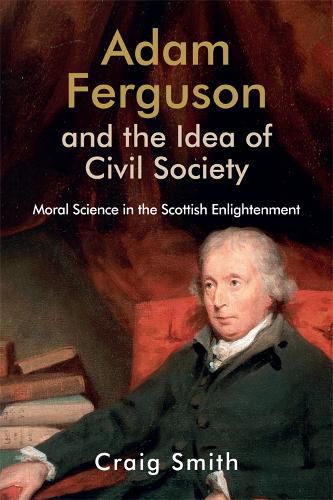Readings Newsletter
Become a Readings Member to make your shopping experience even easier.
Sign in or sign up for free!
You’re not far away from qualifying for FREE standard shipping within Australia
You’ve qualified for FREE standard shipping within Australia
The cart is loading…






Adam Ferguson, a friend of David Hume and Adam Smith, was among the leading Scottish Enlightenment figures who worked to develop a science of man. He created a methodology for moral science that combined empirically based social theory with normative moralising. He was among the first in the English-speaking world to make use of the terms civilization, civil society and political science.
Craig Smith explores Ferguson’s thought, and examines his attempt to develop a genuine moral science and its place in providing a secure basis for the virtuous education of the new elite of Hanoverian Britain. The Ferguson that emerges is far from the stereotyped image of a republican sceptical about commercial society and much closer to the mainstream of the Scottish Enlightenment and its defence of the new British commercial order.
$9.00 standard shipping within Australia
FREE standard shipping within Australia for orders over $100.00
Express & International shipping calculated at checkout
Adam Ferguson, a friend of David Hume and Adam Smith, was among the leading Scottish Enlightenment figures who worked to develop a science of man. He created a methodology for moral science that combined empirically based social theory with normative moralising. He was among the first in the English-speaking world to make use of the terms civilization, civil society and political science.
Craig Smith explores Ferguson’s thought, and examines his attempt to develop a genuine moral science and its place in providing a secure basis for the virtuous education of the new elite of Hanoverian Britain. The Ferguson that emerges is far from the stereotyped image of a republican sceptical about commercial society and much closer to the mainstream of the Scottish Enlightenment and its defence of the new British commercial order.